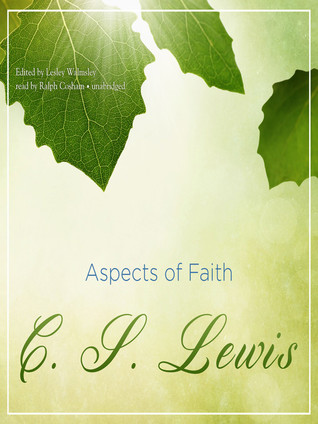- Biblia
- Leer la Biblia
- Versiones de la Biblia
- Verso del dia
- Planes de lectura
- Versos por tema
- Books of the Bible
- Imágenes De La Biblia
- Estudio
- Comentarios
- Concordancias
- Diccionarios bíblicos
- Enciclopedias bíblicas
- Sermones
- Bible Atlas & Maps
- BP Wiki
- Devocionales
- Devocionales de hoy
- Light of the World
- Todos los devocionales
- Inspirational Quotes
- Más
- Picture Quotes
- Videos
- Inspirador
- Estudio Bíblico
- Lo que dice la Biblia
- Bible Q&As
- Daily Bread
- Bible by Genre
- Bible Stories
- Random Bible Verse
- Comunidad
- Store
This volume of short essays and other pieces by C. S. Lewis is part of a larger collection, C. S. Lewis: Essay Collection and Other Short Pieces. In addition to his many books, letters, and poems, C. S. Lewis wrote a great number of essays and shorter pieces on various subjects. He wrote extensively on Christian theology and the defense of faith but also on ethical issues and the nature of literature and storytelling. Within these pages is a treasure trove of Lewis' reflections on diverse topics.
This volume includes
1. Christianity and Culture
2. Evil and God
3. The Weight of Glory
4. Miracles
5. Dogma and the Universe
6. "Horrid Red Things"
7. Religion: Reality or Substitute?
8. Myth Became Fact
9. Religion and Science
10. Christian Apologetics
11. Work and Prayer
12. Religion without Dogma?
13. The Decline of Religion
14. On Forgiveness
15. The Pain of Animals
16. Petitionary Prayer
17. On Obstincy in Belief
18. What Christmas Means to Me
19. The Psalms
20. Religion and Rocetry
21. The Efficacy of Prayer
22. Fern-Seed and Elephants
23. The Language of Religion
24. Transposition
This volume includes
1. Christianity and Culture
2. Evil and God
3. The Weight of Glory
4. Miracles
5. Dogma and the Universe
6. "Horrid Red Things"
7. Religion: Reality or Substitute?
8. Myth Became Fact
9. Religion and Science
10. Christian Apologetics
11. Work and Prayer
12. Religion without Dogma?
13. The Decline of Religion
14. On Forgiveness
15. The Pain of Animals
16. Petitionary Prayer
17. On Obstincy in Belief
18. What Christmas Means to Me
19. The Psalms
20. Religion and Rocetry
21. The Efficacy of Prayer
22. Fern-Seed and Elephants
23. The Language of Religion
24. Transposition
BUY NOW
Audiobook
Published by Blackstone Audio, Inc.
Suscribir
© 2025 Bibleportal.com Reservados todos los derechos.

Clive Staples Lewis was born in Ireland, in Belfast on 29 November 1898. His mother was a devout Christian and made efforts to influence his beliefs. When she died in his early youth her influence waned and Lewis was subject to the musings and mutterings of his friends who were decidedly agnostic and atheistic. It would not be until later, in a moment of clear rationality that he first came to a belief in God and later became a Christian.
C. S. Lewis volunteered for the army in 1917 and was wounded in the trenches in World War I. After the war, he attended university at Oxford. Soon, he found himself on the faculty of Magdalen College where he taught Mediaeval and Renaissance English.
Throughout his academic career he wrote clearly on the topic of religion. His most famous works include the Screwtape Letters and the Chronicles of Narnia. The atmosphere at Oxford and Cambridge tended to skepticism. Lewis used this skepticism as a foil. He intelligently saw Christianity as a necessary fact that could be seen clearly in science.
"Surprised by Joy" is Lewis's autobiography chronicling his reluctant conversion from atheism to Christianity in 1931.
... Show more